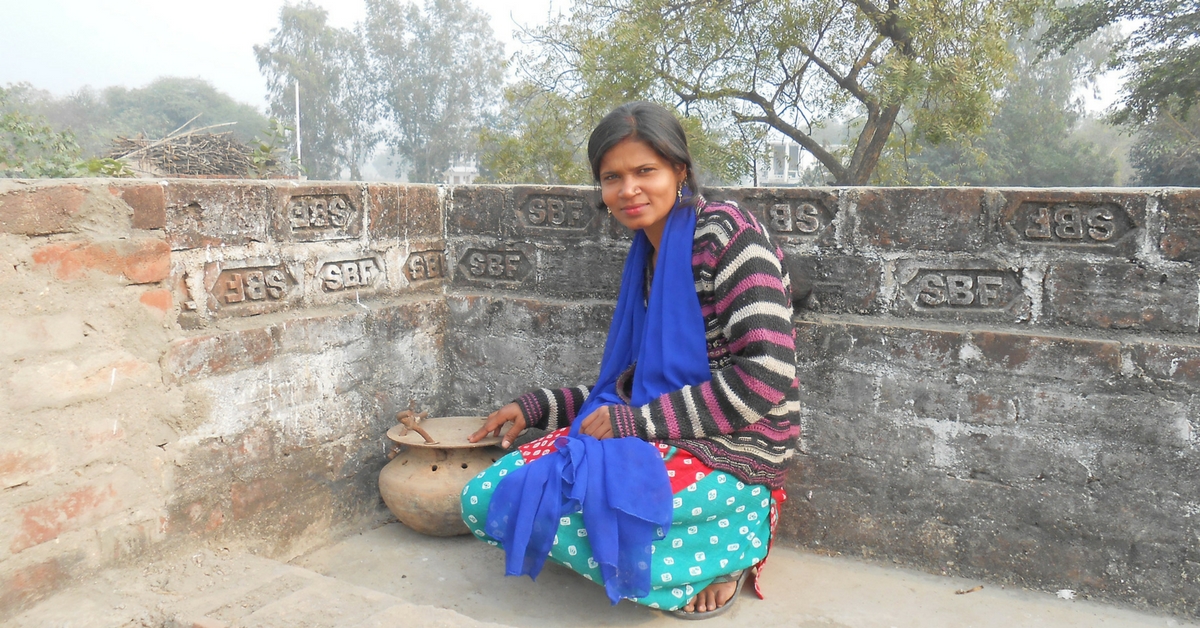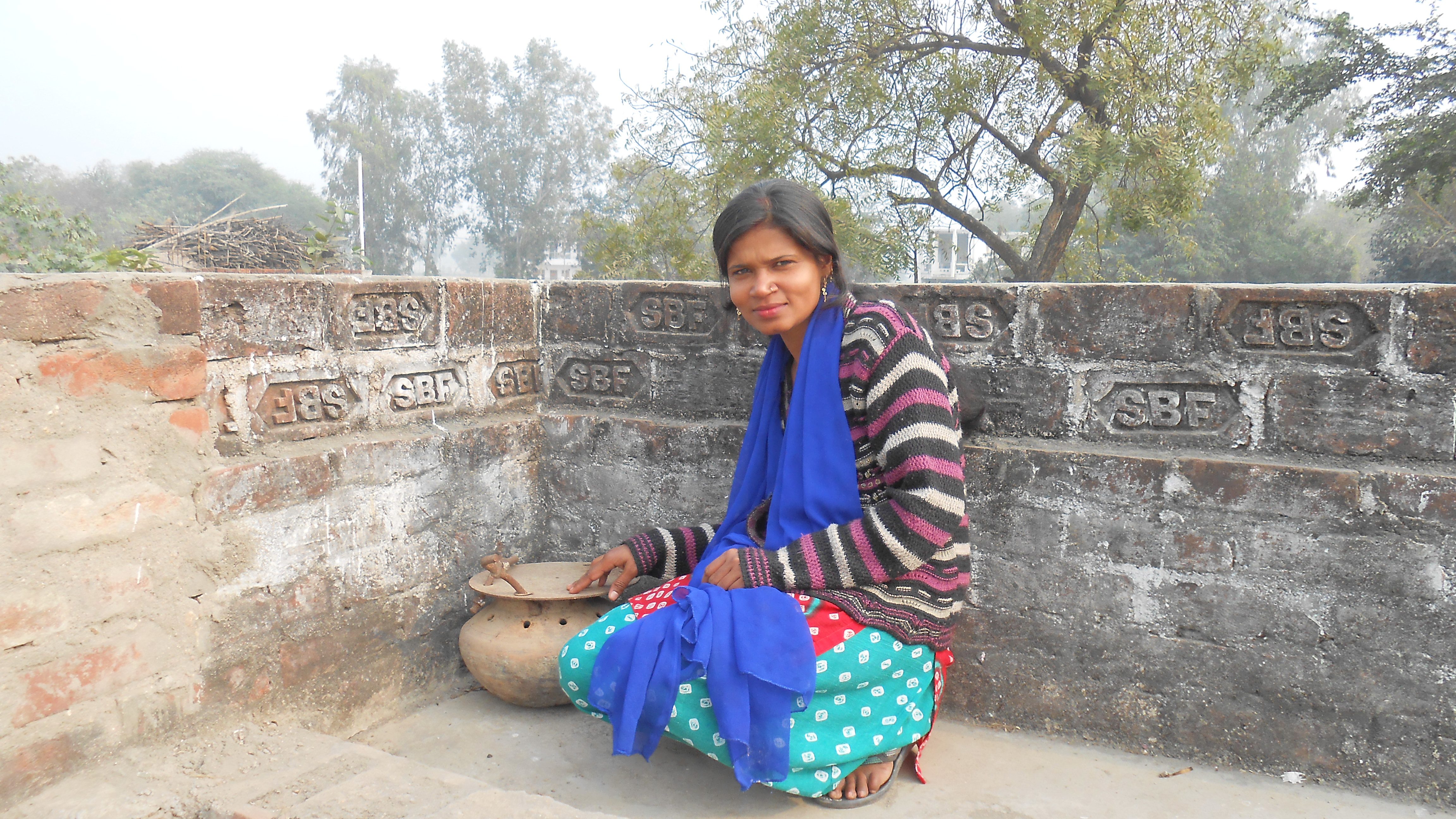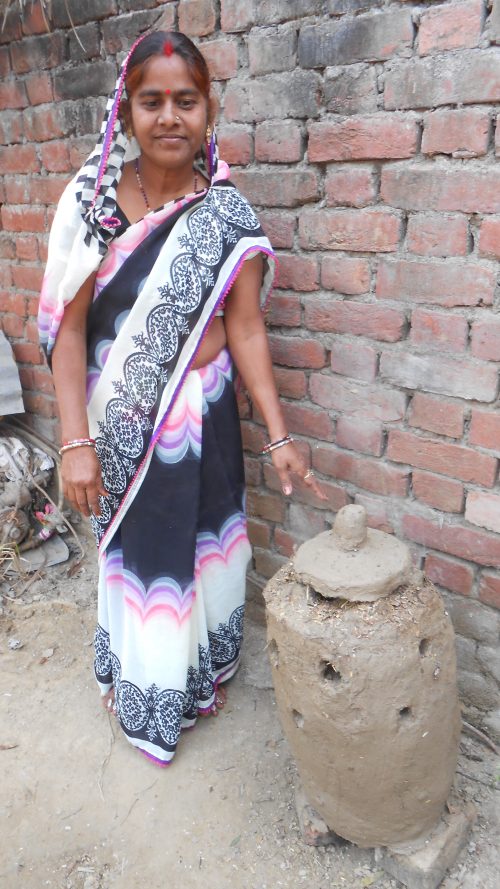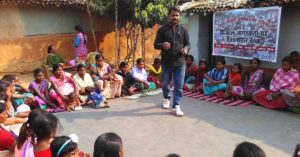TBI Blogs: Learn How a Village in UP Is Cleaning up Menstrual Waste Sustainably – With a Home-Based Solution!
Menstruation and menstrual waste are still taboo topics in many parts of India, especially in rural areas. Amidst this environment, a small village in Uttar Pradesh has taken a huge progressive towards dealing with menstrual waste and raising awareness about menstruation. Puja Awasthi explores further.

Menstruation and menstrual waste are still taboo topics in many parts of India, especially in rural areas. Amidst this environment, a small village in Uttar Pradesh has taken a huge progressive towards dealing with menstrual waste and raising awareness about menstruation. Puja Awasthi explores further.
In a country of 350 million menstruating women and girls, soiled sanitary napkins lying by the roadside are a common sight. This has collectively inspired us to turn a blind eye towards the existence of used sanitary napkins in our ecosystem.
People from Papna Mau, a small village located on the outskirts of Lucknow, collectively decided to use locally devised sustainable methods of sanitary napkin-disposal to tackle the growing mounds of menstrual waste. By taking this small step, the village ensured cleaner surroundings, and also blunted the persistent shame and taboos associated with menstruation in our country.
Sheela Singh, 27, proudly points towards the covered earthen pot kept in a corner of her house’s terrace. “This remarkable small pot is lined with dried leaves and works as a low-cost incinerator into which all the menstruating females in the family throw their used sanitary pads. Once full, the waste is doused with some oil and set alight. The holes prevent a crack in the pot while letting in air. The resultant ash is then disposed off without fear of attracting undue attention,” explains Singh.
Singh, who is currently pursuing a graduate degree, remembers the time when she was forced to skip school during menstruation. “My mother told us to stay at home at it was difficult to manage periods. If only we could have thought of such simple innovative solutions for our problems then,” she says.
Sunita Kanojia, 42, has tweaked the incinerator design to suit her needs. She just finished shaping a bigger mud incinerator, as she has a big family. The incinerator sits under a shed in her courtyard. “Imagine how far we have come. There was a time when my husband resisted even the construction of a toilet in our house,” she says.
In most of the houses, incinerators are kept outside the toilet window, through which used napkins can be dropped directly.

Until now, Papna Mau’s preferred modes of disposal were throwing used menstrual absorbents in local water bodies or burying them in the ground, making them a permanent part of the ecosystem. Though large-scale burning of sanitary napkins leads to toxic emissions, such home-based simple mud incinerators seem like a lesser evil.
At a macro level, lack of clarity on menstrual waste disposal mechanisms has been a persistent challenge for policy makers and civil society practitioners. Sanitary napkins are technically classified as ‘biomedical waste’, and should be collected and disposed of appropriately. However, due to inherent logistical challenges, menstrual waste is usually clubbed with other household waste.
According to the existing Solid Waste Management Rules, “every waste generator shall wrap securely the used sanitary waste like diapers, sanitary pads, etc., in the pouches provided by the manufacturers or brand owners of these products, or in a suitable wrapping material as instructed by the local authorities, and shall place the same in the bin meant for dry waste or non-biodegradable waste”.
Independent organisations have suggested that menstrual waste be indicated by a big red dot for the benefit of waste workers who routinely handle such waste with bare hands, and thus expose themselves to the considerable risk of contracting infections.
Experts also suggest that a permanent solution to the challenge would be to shift to using more eco-friendly sanitary products, which would be easier to dispose of and also offer protection from the harmful chemicals that are used in the production of sanitary napkins.

Papna Mau has taken a lead in menstruation conversation. Women and girls are no longer compelled to hide used sanitary pads, or sneak out under the cover of darkness to dispose of them. They are free from the unhealthy pressure of using as few pads as possible. Papna Mau is a cleaner village and is rid of waste that was never even acknowledged. Most importantly, menstruation is no longer the taboo it once was.
Women in the village now gather to speak about their menstruation-related experiences in the centrally located Anganwadi. The men sit outside, waiting to share their views on various related aspects like safe disposal. In a country where women prefer silence when it comes to topics like menstruation, this is a remarkable change.
Dinesh Kumar Yadav, 30, speaks of the time when men would utter curses on spotting sanitary napkins. “It took some time, but men in the village are now convinced that blaming women is not the solution. I even tell my wife to worship during her periods, but she is hesitant,” he says. “Like other village men, I even go to the local shop and buy sanitary napkins,” says Yadav.
Papna Mau touches the state capital Lucknow, and is a mix of rural and urban characteristics. The population has sustained livelihood, and is moderately educated. “The challenge was to sell the idea that there are better ways of living. To change the ‘we know best’ mindset was the toughest challenge,” said Anju Vats, field worker.
The intervention in Papna Mau followed a two-pronged approach. In addition to devising better disposal methods, adequate supply of sanitary products was ensured. The change agents (or ‘titliyan’ as they are known under the programme) were identified and trained to sell the product.
This helped tackle the shame that came from asking a male shopkeeper for sanitary napkins.

Rita Gautam, 16, is one such depot manager. “My mother was not at home, and sanitary napkins were not available at any of the shops in the village. I faced so much discomfort and embarrassment. I do not want other girls to face the same distress,” says Gautam, who offers advice on disposal with every pack she sells. She shared that some men in the village too come to get the product.
“Menstruation is the first reproductive right of women. How it is dealt with sets the template for future empowerment,” explains Dr. Neelam Singh, Chief Functionary of Vatsalya, WaterAid India’s partner organisation.
By this simple measure, Papna Mau’s female population is treading the right path.
(The author is a Lucknow-based independent journalist who reports on social justice and politics from North India. She is currently a fellow with the Population Reference Bureau, Women’s Edition Asia.)
To support WaterAid India and contribute to its efforts, visit the website.
Like this story? Or have something to share? Write to us: [email protected], or connect with us on Facebook and Twitter.
NEW: Click here to get positive news on WhatsApp!
If you found our stories insightful, informative, or even just enjoyable, we invite you to consider making a voluntary payment to support the work we do at The Better India. Your contribution helps us continue producing quality content that educates, inspires, and drives positive change.
Choose one of the payment options below for your contribution-
By paying for the stories you value, you directly contribute to sustaining our efforts focused on making a difference in the world. Together, let's ensure that impactful stories continue to be told and shared, enriching lives and communities alike.
Thank you for your support. Here are some frequently asked questions you might find helpful to know why you are contributing?


This story made me
-
97
-
121
-
89
-
167














